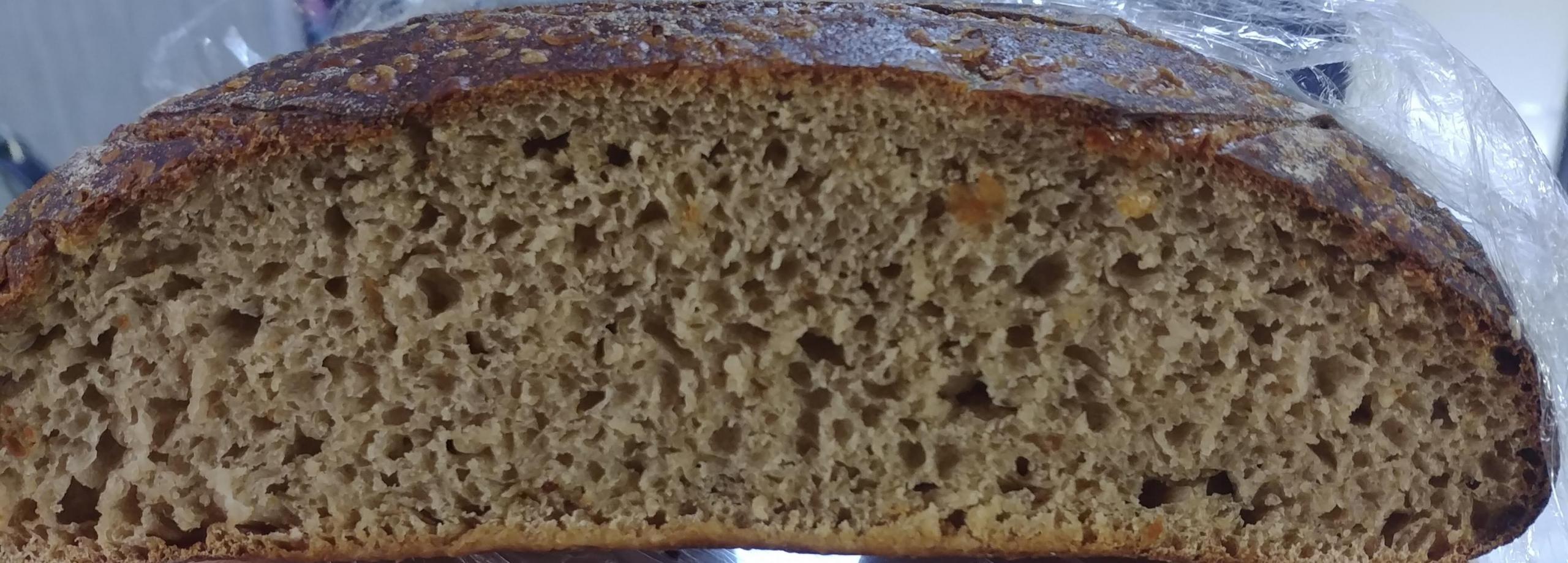Hi guys,
I am experiencing a few different issue with the starter and the bread, hoping someone is going to manage to give me some insight into this.
1) So, I have started a starter with 100% hydration with kiwi/pear/onion. Activity was good at the start, it is bubbling well, but not doubling in size, why is that? Most of the time after feed, it will start to bubble after about an hour. Feeding with whole grain. 1:1:1, room temp.
Did a float test, it floats, so I decide to go and make a few loafs and see how it goes as I don't want to keep throwing starter away. Bread came out not extremely dense, there is good texture and taste, but it is not what I am after.
Recipe
200g Bread Flour
200g whole grain
160g starter
230g water
8g salt
started making the dough 8 hours after feeding. kitchen aid, dough hook, mix till smooth, bulk fermentation 1.5 hrs, pull and stretch & 20 mins rest x3, about 15 hrs final proof. Oven 230 degrees Celsius, 35 mins.
2) when it came out from the basket, it was holding shape, as soon as I slash, it started deflating, how can I fix this?
3) the structure of the bread, I can see it as good, but the bubbles are not big and slightly dense, is that because of my starter not being extremely active?
4) crust is slightly chewy, specially at the bottom. I am already baking on stone.

"2) when it came out from the basket, it was holding shape, as soon as I slash, it started deflating, how can I fix this?"
That's a good indication it was over-proofed. Use the finger-poke test to tell when it is ready to bake.
if you have to proof that long, because of your schedule, be sure to do so in the refrigerator.
Also, reducing the amount of starter in your recipe will allow for long proofs without over-proofing.
Two more things, that would suggest to use less starter:
1) starters made of whole wheat (and whole rye) are very fast and powerful, because of all the enzymes in whole wheat, so you use less of a whole-wheat starter compared to starters made with all purpose flour.
2) when the dough has a lot of whole wheat, that makes fermentation and proofing go faster too.
--
You generally have to experiment a few times to match the ferment and proofing times to your starter, and the amount of starter you use. Write everything down, so you can learn what works and what does not. Consistency is the name of the game, temperature of ingedients, ambient air temperature, what you feed the starter, how long since the starter was fed, what's in the dough. All that plays a part. If you change even one thing, then your ferment and proof times may have to adjust accordingly.
Bon appétit.
I know it is not over proof as I thought it is under when I saw the small bubbles. I had one which is proof less, and it is even denser.
I tired to Proof it in the fridge, it just stopped growing. 24 hrs later, still the same size.
I will try one with less whole grain tomorrow.
Any comments about the starter activity being low. Any suggestions? Is that the cause of it not proofing in the fridge?
I don't see a fallen crumb like many an overproofed loaf. Nice lifting shoulders, good crust color all around. Crispy crust. Crumb looks like it should with 58% whole grain flour. That tends to weigh things down. I suppose you could knead the dough longer to develop gluten more before bulking or reduce the % of whole flour. Or soak the whole flour to hydrate several hours before mixing.
Wait a day and re-evaluate the crumb and flavour.
As far as I know, the dough mass does not necessarily have to increase in volume in order for proofing/fermentation to be going on.
Also, the breakdown of proteins via acid continues to happen during proof, even in the fridge. That breakdown via acid might also be why the dough deflated so much upon scoring, and why the air pockets are small.
--
Just noticed that your hydration looks low. With a 100% hydration starter, you have 310 g water with 480 g flour, for a 65% hydration.
65% is okay for bread flour, but whole grain usually needs more, like 80% or higher.
I would suggest this calculation, to be adjusted as you see fit:
280 grams of whole wheat flour, @ 80% = 224 grams water.
200 grams of bread flour, @ 65% = 130 grams water.
224 + 130 = 354 grams water.
354 grams total water - 80 grams water in the starter = 274 grams water to add.
--
Also, when your starter gets more mature, and stronger, you may wish to back off the percentage of starter in the formula. 100% starters are usually 20% of the total flour. (Stated another way, the prefermented _flour_ in the starter is 10% of total flour.) Your's is currently 33%, 160 / 480. That would be a lot of starter, unless bulk and final proofs are kept short. But again, it's also a function of how active and strong your starter is.
--
I bake 90-98% whole wheat loaves at 85 to 90% hydration. My starter is fed with almost all whole wheat, and it has become kind of strong. I use 4% pre-fermented flour for an ovenight bulk or proof, and 7% pre-fermented flour when baking the same day,
--
Like Mini said, your crumb does look good for 58% whole wheat. So you're not far from your goals.